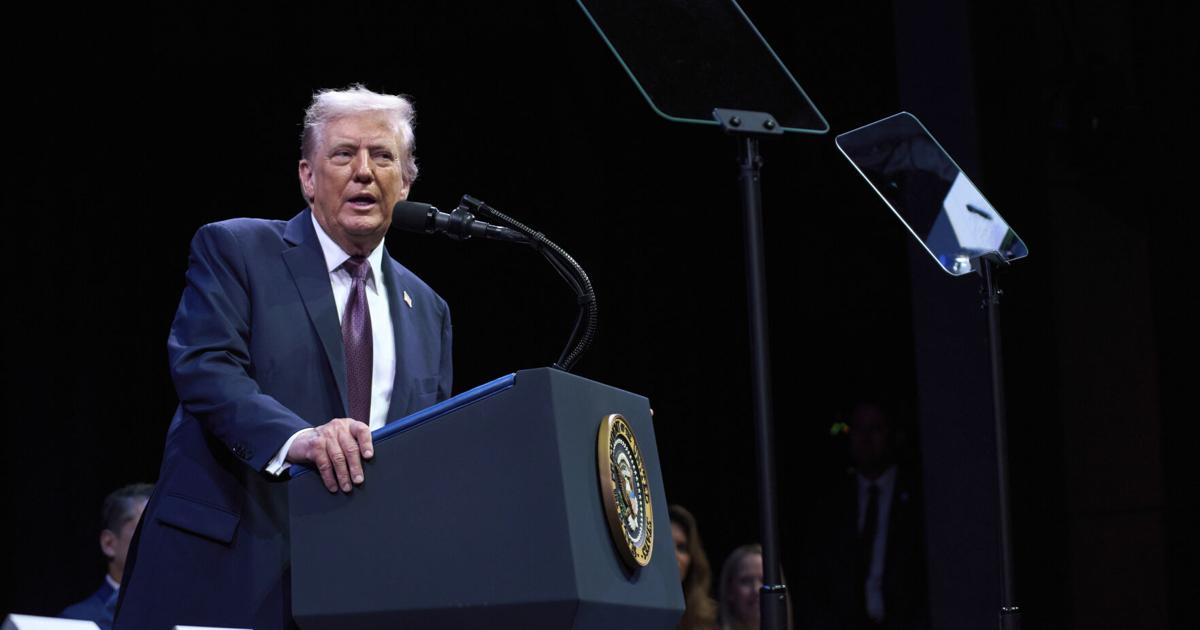The travel ban imposed by former President Donald Trump has significantly hindered the aspirations of countless international students aiming to study in the United States. This policy affects individuals from 19 countries, leaving many feeling stranded after investing time and money in their educational pursuits.
One such student, Saghari, 21, dedicated up to eight hours daily to practicing English in hopes of studying business administration at a private liberal arts college in Illinois. She had anticipated arriving this fall, but her plans fell apart due to the travel ban. “You think that finally you are going to your dream, and then something came up and like, everything’s just gone,” Saghari expressed, reflecting the dismay shared by many.
The ramifications of the travel ban extend beyond individual dreams. Thousands of international students are unable to attend American colleges this fall. Logjams in visa applications, exacerbated by the Trump administration’s additional vetting procedures implemented over the summer, have left many without options. Others have reconsidered their plans due to the administration’s broader immigration policies, which have abruptly terminated the legal status of some students.
According to the State Department, only 5,700 F-1 and J-1 visas were granted to applicants from the affected countries between May and September last year. Notably, citizens of Iran and Myanmar comprised more than half of those approved visas. The travel ban has effectively blocked most individuals from obtaining new visas, although specific exemptions exist for green card holders, dual citizens, and some athletes.
Despite these challenges, the United States remains the first choice for many students seeking quality education. Pouya Karami, a 17-year-old from Shiraz, Iran, focused his college search exclusively on American institutions due to their superior research opportunities in science. He intended to study polymer chemistry at Pittsburg State University in Kansas but has now deferred his admission until next year, holding out hope that the travel ban will be lifted. “I’m doing everything I can about it,” he stated, emphasizing his proactive approach in reaching out to U.S. politicians to reconsider the ban.
The full travel ban encompasses citizens from 12 countries across Africa, Asia, the Middle East, and the Caribbean. The rationale for the ban, cited by Trump in June, includes high visa overstay rates and national security threats from certain foreign governments. He described the screening processes of these nations as “deficient” and indicated that the ban would remain until these issues are resolved.
The impact of the travel ban is deeply felt among families as well. In Myanmar, one 18-year-old student, known by the nickname Gu Gu, was the focus of his family’s sacrifices, who saved diligently to support his education abroad. His acceptance into the University of South Florida was a source of immense pride, but his dreams were shattered when he learned of the travel ban. With the ongoing civil conflict in Myanmar, Gu Gu had hoped to experience the freedoms that studying in the U.S. would offer. “I was all in for U.S., so this kind of breaks my heart,” he lamented, noting that he could not defer his acceptance.
For Saghari, the situation became increasingly complicated when she postponed her visa interview appointment in Pakistan due to the travel ban. After ultimately canceling the appointment, she sought alternatives in Europe but faced further obstacles. A German university informed her that her previous English proficiency test score had expired, necessitating a new assessment—an undertaking complicated by the volatile political climate in Afghanistan. Saghari has since been accepted to a Polish university, conditional upon paying her tuition upfront, while her application undergoes verification.
Another affected individual, Amir, a 28-year-old researcher from Tehran, was unable to travel to the U.S. for a visiting scholar position. This missed opportunity to conduct research at the University of Pennsylvania has left him feeling disillusioned. His professor has postponed his appointment until next year, leading Amir to explore research opportunities in Europe instead. “You lose this idealistic view of the world,” he reflected. “And then you learn that, no, maybe people don’t want you there. That’s kind of hard to deal with it.”
The stories of students like Saghari, Karami, Gu Gu, and Amir highlight the profound human cost of the travel ban. As they navigate uncertain futures, many are left searching for educational opportunities outside the U.S., while hoping for a change in policy that will allow them to pursue their dreams in America.
